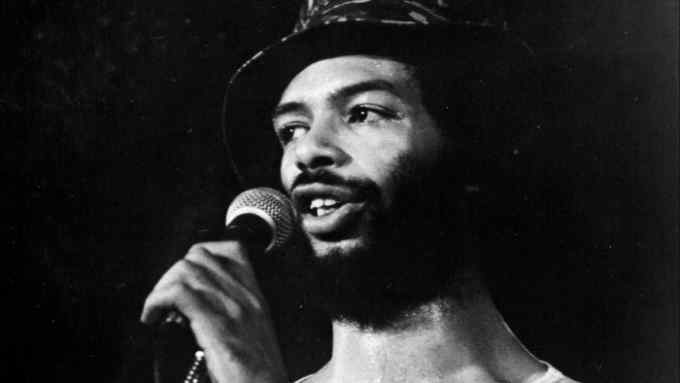‘I Wish I Knew How It Would Feel to Be Free’ — Nina Simone took the song to another level

Roula Khalaf, Editor of the FT, selects her favourite stories in this weekly newsletter.
To generations of British TV viewers, its full-octave, syncopated piano chords and grooving bass are instantly recognisable as the theme tune to the BBC’s Film review series. But to Americans, “I Wish I Knew How It Would Feel to Be Free” has deeper resonances, being best known as a civil rights anthem. When Nina Simone recorded it on her 1967 album Silk and Soul, almost instantly it became a freedom song, up there with “A Change is Gonna Come” and “Blowin’ in the Wind”.
Yet this irresistibly catchy 16-bar gospel-jazz tune began life an instrumental. Born in 1921 in North Carolina, composer Billy Taylor was a gifted pianist who had built an impressive jazz pedigree working in New York with bebop luminaries such as Dizzy Gillespie, Artie Shaw and Charlie Parker. By the 1960s, he was also a broadcaster and civil rights campaigner, and had recorded many albums, mostly with his trio.
Bucking that trend, the first recording of “I Wish I Knew” on Taylor’s 1963 album Right Here, Right Now had a big-band line-up of 19 musicians. With Ben Tucker on bass and Grady Tate on drums, Taylor’s eloquent piano solo is bookended by a full horn chorus that’s almost hymnal. (The version used by the BBC was recorded later, with a trio, in 1967.)
But the song had yet to be performed or recorded with lyrics. Billy Taylor’s daughter Kim Taylor-Thompson, a law professor in New York, had initially spurred her father to write the song when she came home from school singing a spiritual.
Kim takes up the story (via email) of how it acquired lyrics. “Dad initially recorded it as an instrumental. But, as I recall, he had written the first verse of the lyrics pretty early on. He got stuck at one point and invited [lyricist] Dick Dallas to collaborate to help him finish the lyrics and that’s when we got the later verses. I’ve always felt that there was a difference between the first verse and the later ones. I think you hear my dad’s voice most clearly in the first verse.”
So, as soon as Nina Simone sang, “I wish I could break all the chains holding me” on Silk and Soul, the floodgates were open. Simone’s artistry and passion took the song to another level, one that resonated not only with the civil rights movement but with issues of identity and individualism.
Like Taylor, Simone was born in North Carolina, and church music played a large part in her childhood; like him she had a formal musical training; like him she was an activist, and in her impassioned treatment of the song on Silk and Soul her voice is clear, sincere, without irony.
Subsequent versions of the song were less convincing. The following year, the song reached No 68 in the US charts in a recording by Solomon Burke that begins with the cheesy voiceover: “Have you ever wished upon a star/And all your hopes seem so far?” Folk singers John Denver and Mary Travers produced earnest guitar-strumming versions.
In 2001, UK duo Lighthouse Family released a wistfully yearning version featuring the mellifluous voice of Tunde Baiyewu. Emeli Sandé’s 2013 rendition is full of soulful intent.
Meanwhile Coca-Cola capitalised on the song’s feelgood factor with a 2004 TV advert featuring British singer Sharlene Hector, though the lyrics were changed to the schmaltzy “I wish I could share all the love that’s in my heart”, with Hector strolling down a US street handing out bottles of Coke to delighted passers-by.
All of which is a world away from the gutsy Simone. It was in live concerts that she really took possession of the song, giving it a powerful, personal rawness. Like a gospel preacher, she improvised with the lyrics, turning their message of hope into positive affirmation: “I know how it feels/Not to be chained/to any race/to any face”. At Montreux Jazz Festival in 1976 she put on a storming show, transporting the audience while simultaneously showing her effortless mastery of piano styles from swing to baroque.
Above all, Simone gave herself completely to the freedom of performance, of being herself, doing and saying exactly as she felt at the time. In the film Nina directed by Joel Gold, she said that freedom for her meant “no fear”. Her fearlessness is the legacy of the song.
Photograph: David Redfern

Comments